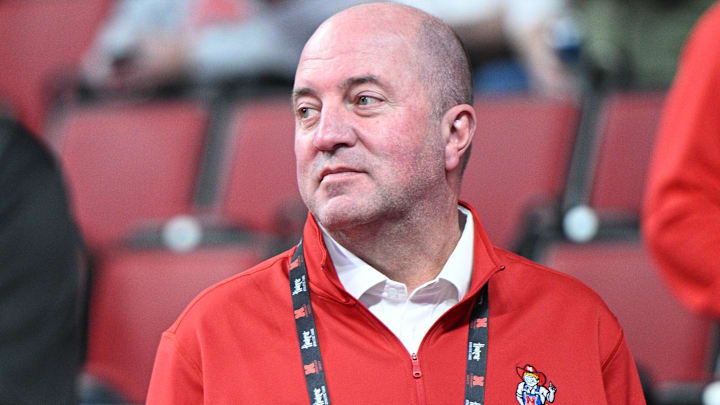With the arrival of the new NIL and the revenue-sharing era, it's been natural to wonder just how much the Nebraska football team is spending. And how that compares to their rivals. However, while there are reports here and there about how much an athlete is making or how much a school is spending, there's very little actual confirmed data.
It turns out, hiding how much a player is making and how much a school is spending is almost uniformly intentional. A new report used the Huskers as the most prominent example of this approach. Daniel Libbit of Sportico said that NU, and several other schools, considering what they're spending and on whom amounts to data that could cause "competitive harm" if it were publicly available.
Nebraska keeping rev sharing and athlete payments secret at all costs
Libbit says that he's made requests of several FBS schools regarding three pieces of specific data. The total amount distributed, the total number of transactions, and any more detailed breakdowns of these expenditures by sport.
Nebraska, as it turns out, is among those that fought the hardest to keep the information under wraps, though they are far from the only ones who said no to all three questions.
"In one instance, I appealed a school’s (Nebraska’s) outright denial of my request to the state attorney general. Nebraska’s Trade Secrets Act defines a 'trade secret' as information that 'derives independent economic value' to not being known to others and is the subject of 'efforts that are reasonable under the circumstances to' keep it secret."
Nebraska fought his attempts to get the information, and the AG eventually agreed. The argument made was this:
"If a rival school knew that the University was allocating a specific percentage of the revenue sharing cap towards its football program, had a certain amount of cap dollars left (based on how much money had already been spent and in how many payments), and was recruiting a particular student-athlete to transfer at midyear, the rival institution could attempt to offer the same student-athlete a higher amount of money based on its knowledge of what the University could offer. Or, if a peer institution with a rival volleyball team knew that the University was allocating a particular percentage of the revenue sharing cap to the volleyball team, it could choose to allocate a higher percentage of its own cap the following year to gain an advantage."
Sometimes, individual deals are still announced, the same way some athletes' and coaches' salaries are announced as a source of pride. But Nebraska and others clearly believe that if rival schools knew how they were spending money, it would hurt their ability to compete.
At the very least, that sheds more light on why programs keep this stuff under wraps. It also raises the question of whether they might change in the near future.
